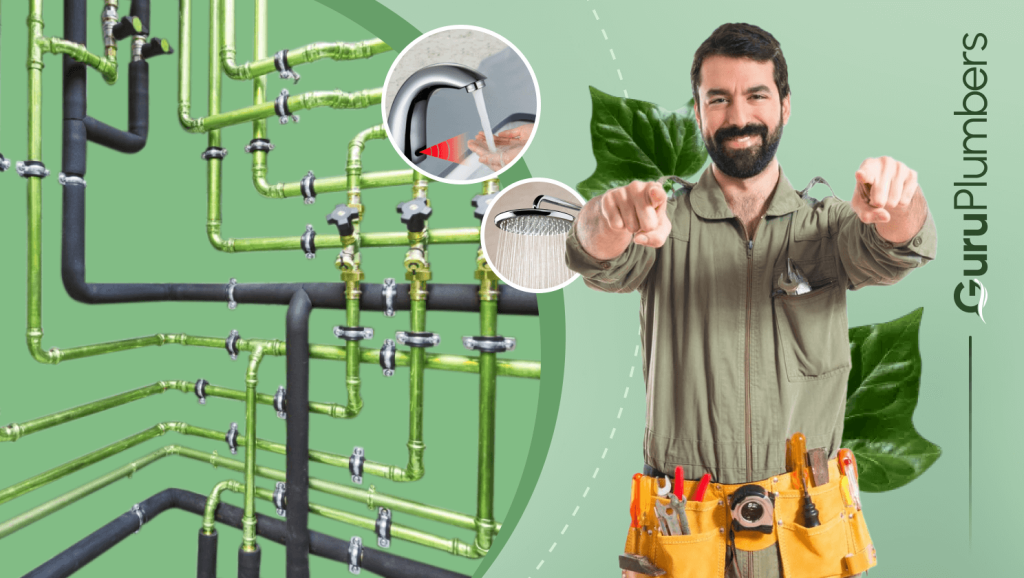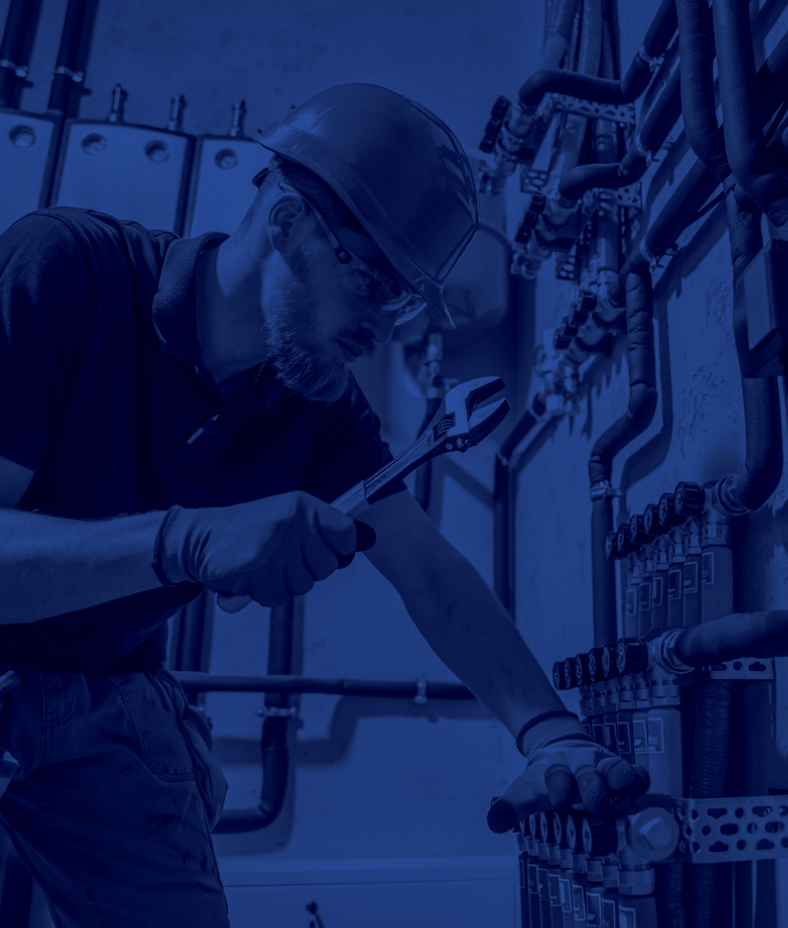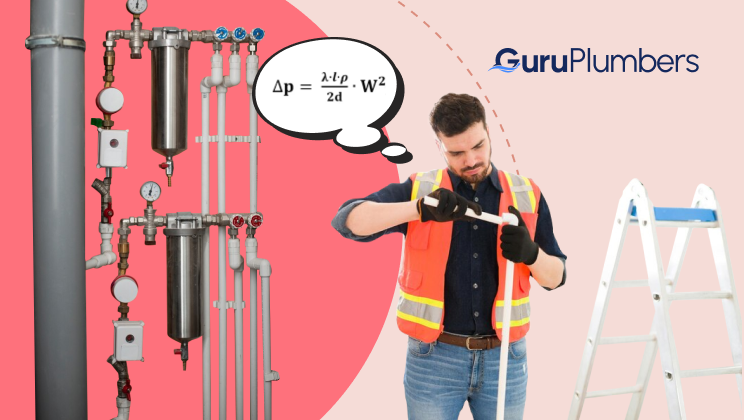Sustainability in home maintenance is crucial for reducing environmental impact, conserving resources, and saving on utility costs. Sustainable practices ensure long-term benefits for both homeowners and the planet.
Eco-friendly plumbing focuses on reducing water usage, using sustainable materials, and minimizing waste. Benefits include lower utility bills, reduced carbon footprint, and improved water efficiency.
This blog post aims to provide practical, sustainable plumbing solutions for homeowners, helping them to implement eco-friendly practices and make informed choices for a greener home.
1. Understanding Eco-Friendly Plumbing
Definition of Eco-Friendly Plumbing
Eco-friendly plumbing refers to the use of water-efficient fixtures, sustainable materials, and innovative technologies to reduce water and energy consumption, minimize waste, and promote environmental conservation.
The Environmental Impact of Traditional Plumbing Systems
Traditional plumbing systems often use excessive water, rely on non-renewable materials, and contribute to significant water waste and energy consumption. Consequently, utility bills rise and carbon footprints increase.
Benefits of Adopting Sustainable Plumbing Practices
Adopting sustainable plumbing practices results in:
- Lower water and energy bills
- Reduced environmental impact
- Increased efficiency and lifespan of plumbing systems
- Enhanced home value and marketability
2. Water Conservation Techniques
Low-Flow Fixtures
Low-flow toilets, showerheads, and faucets reduce water usage without sacrificing performance. These fixtures can cut water consumption by up to 60%, lowering utility bills and conserving resources.
Dual-Flush Toilets
Dual-flush toilets offer two flush options: liquid waste can be flushed at a low volume, while solid waste can be flushed at a higher volume. This design significantly reduces water usage compared to traditional single-flush toilets.
Efficient Irrigation Systems
Drip irrigation and smart sprinklers optimize water delivery to plants, minimizing runoff and evaporation. These systems ensure efficient water use, promoting healthy plant growth and reducing water waste.
Rainwater Harvesting Systems
Water harvested from rain is used for irrigation, toilet flushing, and car washing, among other uses not requiring potable water. The result is a decrease in water bills and a reduction in reliance on municipal water supplies.
Greywater Recycling
Recycled greywater is used for irrigation and toilet flushing as well as to treat and reuse water from sinks, showers, and laundry. This practice conserves freshwater resources and reduces wastewater production.
3. Sustainable Plumbing Materials
PEX Piping vs. Traditional Copper Piping
PEX piping is flexible, resistant to scale and chlorine, and has a longer lifespan compared to traditional copper piping. It is also easier to install, reducing labor costs and potential waste.
Recycled or Sustainable Materials for Pipes and Fixtures
Using pipes and fixtures made from recycled or sustainable materials reduces environmental impact. Options include recycled metal, glass, and eco-friendly plastics, which contribute to resource conservation.
Non-Toxic, Lead-Free Options
Choosing non-toxic, lead-free plumbing materials ensures safe drinking water and reduces health risks. Lead-free pipes and fixtures are essential for maintaining a healthy home environment.
Benefits of Using Durable, Long-Lasting Materials
It reduces waste and maintenance costs by using durable materials such as stainless steel and PEX, which last longer and require fewer replacements. Long-lasting materials enhance the sustainability and reliability of plumbing systems.
4. Energy-Efficient Water Heating Solutions
Solar Water Heaters
With solar water heaters, you can heat water without relying on electricity or gas. They significantly lower energy bills and are an environmentally friendly option, especially in sunny regions.
Tankless Water Heaters
Water is heated on demand with tankless water heaters, reducing energy consumption and storage space requirements. They provide endless hot water and are more efficient than traditional tank heaters.
Heat Pump Water Heaters
Compared with conventional electric water heaters, heat pumps use less electricity to heat water. It is possible to save up to 60% of your energy by using them.
Insulating Water Heaters and Pipes
Insulating water heaters and pipes minimizes heat loss, maintaining water temperature and reducing energy consumption. Simple insulation can lead to significant energy savings and improved system efficiency.
5. Reducing Waste in Plumbing Practices
Eco-Friendly Drain Cleaners and Maintenance Products
Keep the water supply safe by using biodegradable, nontoxic drain cleaners and maintenance products. These products effectively clear clogs and maintain pipes without environmental damage.
Proper Disposal and Recycling of Old Plumbing Materials
Dispose of old plumbing materials responsibly by recycling metals, plastics, and other recyclable components. Proper disposal reduces landfill waste and promotes the reuse of valuable resources.
Choosing Products with Minimal Packaging
Opt for plumbing products with minimal or recyclable packaging to reduce waste. This practice supports sustainability by decreasing the amount of packaging materials that end up in landfills.
6. Innovative Plumbing Technologies
Smart Home Water Management Systems
Smart home water management systems allow homeowners to monitor and control water usage remotely. These systems provide real-time data, helping to identify usage patterns and optimize water consumption.
Leak Detection Sensors
Leak detection sensors alert homeowners to leaks in the plumbing system, preventing water waste and damage. Early detection helps to address issues promptly, saving water and reducing repair costs.
Automatic Shut-Off Valves
Water supply is shut off automatically when a leak is detected, preventing damage and waste. These valves are crucial for preventing extensive damage in case of pipe bursts or major leaks.
Water Usage Monitoring Apps
Water usage monitoring apps track and analyze water consumption, providing insights and recommendations for reducing usage. These apps help homeowners stay informed and make data-driven decisions to conserve water.
7. DIY Eco-Friendly Plumbing Tips
Regular Maintenance to Prevent Leaks and Wastage
Regularly inspect pipes, fixtures, and appliances for leaks and repair them promptly. Preventative maintenance helps avoid water wastage and ensures the plumbing system operates efficiently.
Simple Repairs and Upgrades to Enhance Sustainability
Replace worn-out washers, fix dripping faucets, and install low-flow fixtures to improve water efficiency. Upgrading to more sustainable options reduces water and energy consumption.
How to Reduce Water Usage in Daily Routines
- Take shorter showers and install low-flow showerheads.
- Make sure the tap is turned off before brushing your teeth or washing your dishes.
- Washing machines and dishwashers should only be used for full loads.
- Garden and use rainwater for non-potable purposes.
- Educate family members on water-saving practices to foster a culture of conservation.
8. Working with Eco-Friendly Plumbers
How to Find and Select Eco-Conscious Plumbing Professionals
- Search for plumbers who advertise eco-friendly services and sustainable practices.
- Look for reviews and testimonials that highlight their commitment to sustainability.
- Consider asking friends, family, or members of online communities for recommendations.
Questions to Ask Potential Plumbers
- What eco-friendly plumbing solutions do you offer?
- Is there a sustainable material or technology that you use that you can share with us?
- How do you ensure minimal environmental impact during your projects?
- Are you familiar with local government incentives for eco-friendly plumbing?
The Importance of Certifications and Green Credentials
- Look for plumbers with certifications such as Green Plumber or LEED accreditation.
- Certifications indicate knowledge and commitment to sustainable practices.
- Ensure the plumber stays updated with the latest eco-friendly technologies and methods.
9. Cost-Benefit Analysis
Initial Investment vs. Long-Term Savings
- Eco-friendly plumbing systems often have higher upfront costs.
- Initial investments are offset by long-term savings from reduced water and energy bills.
- Durable, sustainable materials reduce maintenance and replacement costs over time.
Let’s review the example in Seattle, WA (2022)
- Initial investment: A Seattle homeowner spent $6,000 to install a rainwater harvesting system.
- Long-term savings: Over the first year, the homeowner saved approximately $600 on water bills. Expected savings over 10 years: $6,000, offsetting the initial cost and yielding further savings afterward.
Environmental Benefits and Potential Government Incentives
- Reduced water and energy consumption decreases environmental impact.
- Many governments offer incentives, rebates, or tax credits for installing eco-friendly plumbing systems.
- Sustainable plumbing upgrades can be significantly reduced by incentives.
For example: California (2023)
- In 2023, California offered rebates up to $1,500 for homeowners installing high-efficiency toilets, water-efficient irrigation systems, and rainwater harvesting systems. These incentives encouraged widespread adoption of sustainable practices, significantly reducing water consumption statewide.
Recap of Key Points
- Eco-friendly plumbing reduces water and energy consumption, lowers utility bills, and minimizes environmental impact.
- It is necessary to reduce water usage as much as possible by installing low-flow fixtures, dual-flush toilets, irrigation systems that use less water, and greywater recycling systems.
- Sustainable plumbing materials, such as PEX piping, recycled materials, and non-toxic options, enhance system durability and safety.
- Energy-efficient water heating solutions like solar, tankless, and heat pump water heaters, and proper insulation, improve efficiency.
- Reducing waste involves using eco-friendly drain cleaners, recycling old materials, and choosing products with minimal packaging.
- Innovative technologies like smart water management systems, leak detection sensors, and water usage monitoring apps enhance efficiency.
- DIY tips and working with certified eco-friendly plumbers promote sustainable practices and proper maintenance.
Encouragement to Take Actionable Steps Towards Sustainable Plumbing
Implement the discussed eco-friendly plumbing solutions in your home. Regular maintenance, smart upgrades, and conscious water usage can make a significant difference. Collaborate with eco-conscious professionals for optimal results.
Final Thoughts
Adopting sustainable plumbing practices reduces resource consumption and environmental footprint, contributing to a healthier planet. Every small step towards eco-friendly plumbing helps in conserving water and energy for future generations.




